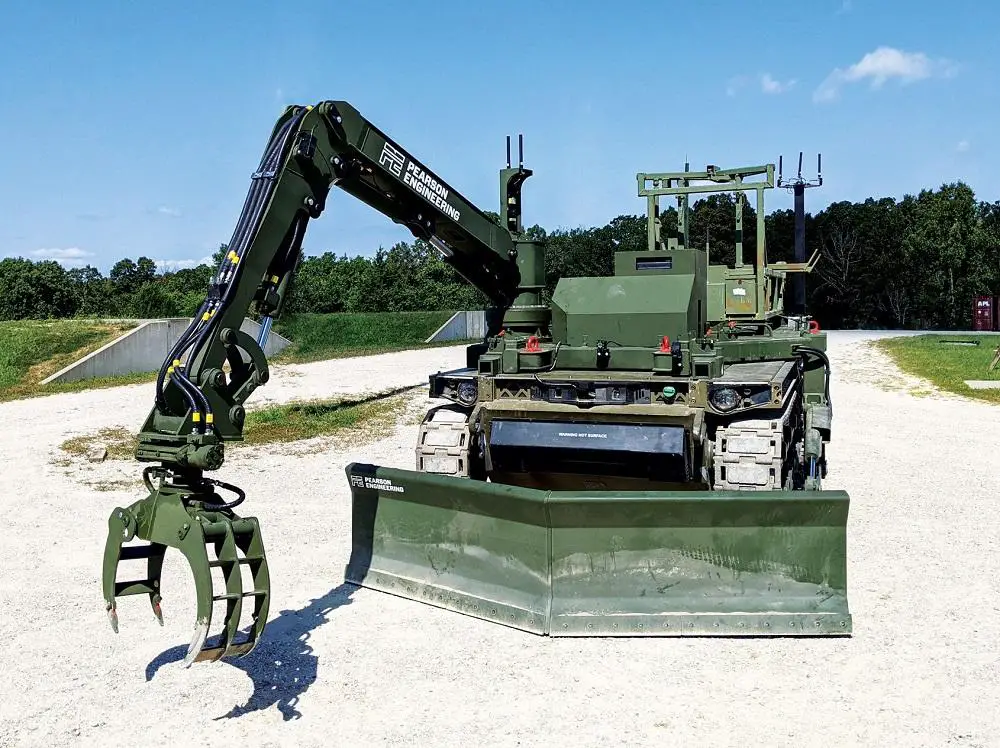Each RCV-Pioneer remotely controlled engineering is tailored to specific combat engineering missions via mission packs which can be rapidly swapped out in field conditions. Based on the same core principles of rapid interchangeability and agility, which are present throughout Pearson Engineering’s product range, RCV-Pioneer provides remotely controlled engineering capability to Robotic Combat Vehicles (RCVs). This allows such vehicles to scale and optimise for the task at hand, whether to support its own mobility, or to provide an engineering effect for others.
It is a self-contained, pre-configured frame to which Pearson Engineering’s combat engineering equipment can be integrated to support specific missions. Such equipment is provided by palletised Mission Packs including capability for obstacle clearance, route proving, minefield breaching and assault gap crossing which can be rapidly swapped out in field conditions. RCV-Pioneer uses an innovative self-lifting system to allow RCVs to rapidly manoeuvre underneath mission packs for rapid integration and removal. The system design will allow two soldiers to fit or remove RCV-Pioneer from the RCV in approximately 30 minutes.

RCV-Pioneer does not require any hydraulic power from the host platform and comprises all the required hydraulic controls for its mission specific tools such as ploughs, dozer blades and excavator arms. It can either take electrical power from the host RCV platform or generate all required power using an integral diesel engine. The RCV-Pioneer Mission Packs are remotely controlled using an intuitive Operator Control Unit (OCU) which includes joysticks and touch screen controls to manage all of its functions. The OCU displays video feeds from cameras mounted on RCV-Pioneer to give optimal situational awareness whilst performing engineering tasks.
For nearly 40 years, Pearson Engineering has provided equipment to help Armed Forces to defend, move and flight. The company products enable combat forces to breach minefields, to overcome explosive ordnance and to defeat and create obstacles. They are designed to provide armoured vehicles with the ability to rapidly adapt to their mission, to overcome challenges to mobility and to deny mobility and momentum to others. The same approach has been applied to RCVs with mission packs optimised, in the same way as Front-End Equipment (FEE), to deliver against mobility, counter-mobility and survivability tasks.
















